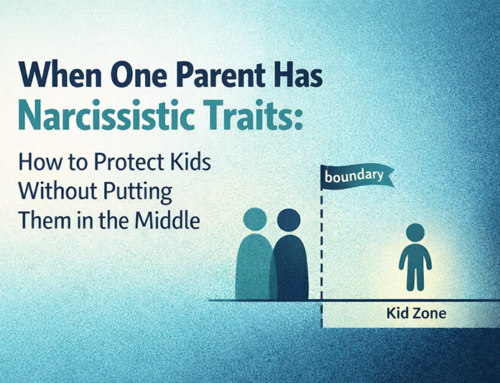10 Signs You’re Dealing with a Covert Narcissist

By Brenda Stephens, Licensed Professional Clinical Counselor
Covert narcissism can be tricky to spot, as it often masquerades as humility and sensitivity. Understanding the signs can empower you to navigate your relationships more effectively. Here, we look into ten key indicators that you might be dealing with a covert narcissist.
1. Excessive Sensitivity to Criticism
Covert narcissists often react disproportionately to any form of criticism, seeing it as a personal attack rather than constructive feedback. This hypersensitivity can create a tense atmosphere, making it difficult for people around them to express honest opinions.
They may seem fragile, and their defensive responses can leave you feeling guilty for simply sharing your thoughts. If you notice that your interactions feel more like walking on eggshells, this could be a clear sign of covert narcissism in play.
2. Feigning Humility
They may present themselves as modest, but this often serves as a strategy to garner sympathy and admiration from others. This clever façade can come off as self-deprecating, drawing people into their trap of perceived vulnerability.
As you engage with them, you might find yourself complimenting them more than you intended, inadvertently feeding their need for validation. Recognizing this pattern is crucial for understanding the manipulation underlying their behavior.
3. Victim Mentality
Covert narcissists frequently portray themselves as victims in various situations, seeking to manipulate your empathy and support. Their narratives often involve moments where they feel unjustly treated, pulling you into a cycle of guilt and responsibility.
By positioning themselves as the downtrodden, they divert attention away from their own behaviors. If every conversation seems to steer towards their misfortunes, it’s a red flag that you might be dealing with a covert narcissist.
4. Lack of Empathy
While they might seem compassionate on the surface, covert narcissists struggle to genuinely understand or share the feelings of others. Their responses often lack depth, leaving you feeling unheard or invalidated, even when they appear to be listening.
This emotional disconnect can be jarring. You might find yourself pouring your heart out while they respond with superficial platitudes. It’s essential to recognize when you’re not receiving the empathy you genuinely need.
5. Charming Yet Self-Absorbed
You might find them captivating at first, but their conversations often revolve around their own experiences and feelings. They possess a certain charm that draws people in, making it easy to overlook their self-centered tendencies.
Over time, you may notice a pattern where your own stories take a backseat. Their ability to steer discussions back to themselves can leave you feeling drained and undervalued.
6. Manipulative Behavior
Their manipulations can be subtle, employing guilt or shame to control others and exert power without overt aggression. For instance, they might use sarcastic comments that leave you second-guessing your intentions.
This covert manipulation often leaves you questioning your reality, making it easier for them to maintain a position of power in the relationship. If you find yourself constantly trying to validate your actions, it’s a sign of their influence.
7. Need for Validation
Covert narcissists often seek constant reassurance and validation from others, needing this to feel secure in their self-worth. This ongoing need can create a dynamic where you feel you must continually boost their ego.
While it’s natural to want affirmation, the neediness of a covert narcissist can feel excessive and exhausting. If you find yourself becoming emotionally drained by their demands for validation, it’s crucial to reassess the toll these interactions are taking on you.
8. Passive-Aggressive Communication
Instead of expressing their feelings directly, they might resort to passive-aggressive remarks and sarcasm to express discontent. This indirect form of communication can leave you in a state of confusion, unsure whether their remarks are playful or genuinely hurtful.
You may catch yourself overanalyzing their words, leaving you feeling frustrated and uncertain. This can create an emotional fog, obstructing clear communication—one of the cornerstones of any healthy relationship.
9. Creating a False Image
They may project an image of being supportive or self-sacrificing but may have underlying motives to inflate their self-image. This façade can be particularly disorienting, as it masks their true intentions, making you question your perceptions.
In social situations, they often seek admiration for their alleged selflessness, reinforcing their narrative as a compassionate individual. If these encounters leave you feeling manipulated, it’s vital to trust your instincts.
10. Fear of Abandonment
Covert narcissists may change their behavior dramatically when faced with perceived rejection, reflecting deep insecurities. This heightened sensitivity can lead to frantic assurances seeking from others, adding a layer of complexity to their relationships.
Their fears might manifest as jealousy or controlling behavior, clouding the relationship with unease. Being aware of these shifts can help you determine whether you’re engaging with a covert narcissist and how to set boundaries.
Find Support
Therapy can be a vital resource. A professional can help guide you through your feelings and provide coping strategies tailored to your needs. The Narcissistic Abuse Recovery Center and Stephens Therapy Associates both have therapists who are trained in helping clients recovering from narcissistic abuse to heal. Click the links to learn more.
Our Online support groups can also offer solace. Connecting with others who have faced similar battles can provide validation and encouragement.
Embrace learning as part of your journey toward renewal. Brenda has two books that might help, which are linked here: Daughters of Narcissistic Mothers and The Workbook.







